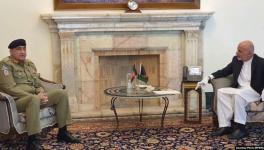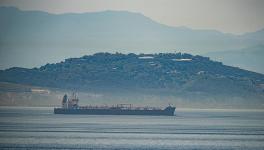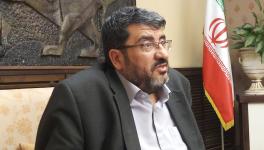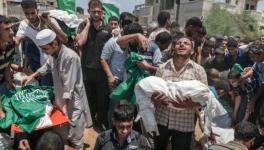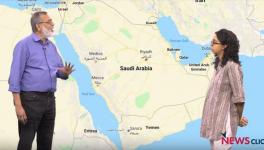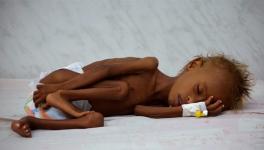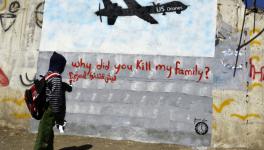Libya and Yemen – Study in Contrast
It is now clear that the no-fly zone has been expanded in Libya to a military campaign for a regime change, something that the UN Security Council did not authorize. Gaddafi’s residence in Tripoli has been bombed and more strikes are taking place in Tripoli and other towns. The argument of course is that Gaddafi’s residence is a military target as it has a command and control centre – a fig-leaf to argue why Gaddafi can be targeted anywhere.
The key issue that will come back to haunt the west is that while it might be easy to impose a no-fly zone, a regime change requires an alternate regime in place. And any regime that rides on western forces is unlikely to gain legitimacy in Libya in the long run. Not surprisingly, even when threatened by Gaddafi’s forces, the opposition groups in Benghazi asked for a no-fly zone but not an intervention of foreign troops on the ground. The problem is that a no-fly zone is not a mere antiseptic measure of asking Gaddafi’s forces not to fly but a direct act of war. It means taking out Gaddafi’s ground defences. That means air strikes against targets on the ground -- in cities and elsewhere. This is what we are seeing as the first phase of the western intervention.
An argument that is being advanced is that Gaddafi’s forces are sheltering behind civilians in towns and cities. This is a rather disingenuous argument. In which country are military centres not in towns and cities? Is the Pentagon not located in Washington –a city? All military cantonments in India are again in cities. This is the nature of how military forces operate and Libya is no different.
As we have written earlier, winning the air war is easy – Gaddafi has some missiles bought from the west when they had clasped him to their collective bosom after 2003. Most of his equipment is antiquated Russian stuff bought before 1989 and therefore no match for what the western powers can bring to bear. The real issue is how the towns and cities can be held – air power is not going to get converted automatically into power on the ground.
It is here that the western plans – which have now gone from protecting civilians to trying to remove the Gaddafi regime and install a new one which is more favourable to the west -- may get unstuck. If there enough forces that rise up in the towns that are still held by Gaddafi or his armed forces defect, then it might work. Else, we are in a for a long conflict in which Libya virtually splits into two – the eastern part centred on Benghazi – historically Cyrenaica and the western part centred around Tripoli – Tripolitania. Gaddafi has shown that he does possess support and not only amongst his family and tribe.
Yemen ; Military Commanders go over to protesters
Meanwhile, Saleh's Government is near collapse in Yemen. Already, key military commanders (http://english.aljazeera.net/news/middleeast/2011/03/2011320180579476.html) have declared that they no longer support the Government and will protect the protesters. This is following the brutal killing of more than 60 protesters in Sanaa. Addressing a news conference, Major General Ali Mohsen Saleh said:
"Yemen today, is suffering from a comprehensive and dangerous crisis and it is widespread
Lack of dialogue and oppression of peaceful protesters in the public sphere, resulted in crisis which has increased each day.
And it is because of what I feel about the emotions of officers and leaders in the armed forces, who are an integral part of the people, and protectors of the people, I declare, on their behalf, our peaceful support of the youth revolution and their demands and that we will fulfil our duties."
Not only senior army commanders but also senior figures in the Saleh Government have resigned – this includes the Huda al-Baan, Yemen's human rights minister and Abdullah Alsaidi, Yemen's ambassador to the United Nations. The ambassadors to Syria, Jordan, Lebanon, Kuwait and China have all resigned in protest. It remains to be seen what Saleh is going to do and what the response is going to be from his sponsors the US and the Saudi regime.
Libya and Yemen show a study in contrast. One is very much in international media news, with the campaign being the humanitarian nature of the western intervention. The brutal crackdown of protests in Yemen and Bahrain find some passing mention, but only to say they are not the same as Gaddafi’s brutal crackdown.
One finds hardly any mention in CNN and BBC that the UN Resolution did not envisage a regime change as its objective. That this has now become the obvious agenda is passed over in silence; it is presented as if this was the intent of the UN resolution all along.
Get the latest reports & analysis with people's perspective on Protests, movements & deep analytical videos, discussions of the current affairs in your Telegram app. Subscribe to NewsClick's Telegram channel & get Real-Time updates on stories, as they get published on our website.










